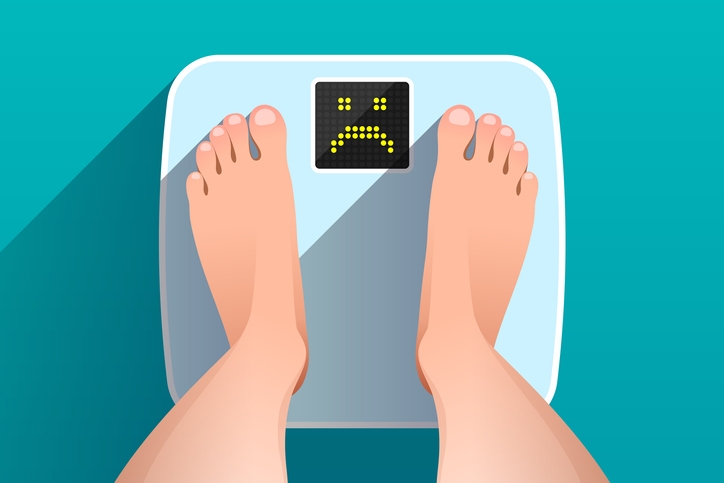Weight Loss Surgery vs. Ozempic: How to Make the Right Choice for You
If you have a significant amount of weight to lose and haven’t been able to do it on your own, you may have considered weight loss surgery. Now, you have a new option to consider: the drug semaglutide which is the active ingredient in medications like Wegovy and Ozempic. But which one is the best choice for your needs and situation? Here’s what to consider, so you and your doctor can make the right decision.
How Does Weight Loss Medication Work?
Now considered to be a weight loss medication by consumers, semaglutide was actually developed as a treatment for type II diabetes. The medication encourages the body to make additional insulin to address increasing blood sugar levels after a meal or snack. It also reduces feelings of hunger by slowing down the rate at which food moves through the stomach.
While Wegovy is the only medication that’s FDA-approved for weight control, many people also take Ozempic for weight loss. Some of these people may also have type II diabetics, as well, since being overweight or obese can contribute to this condition. Others haven’t yet developed diabetes, and reducing their weight may help them avoid this condition.
Working with your doctor is the best way to determine if semaglutide is the right choice for your weight loss journey, because these medications aren’t right for everyone. There can be side effects, and some people don’t process Ozempic or Wegovy as well as others.
What About Weight Loss Surgery?
Weight loss surgery is actually a class of procedures, such as the gastric sleeve and gastric bypass. These are powerful operations that change your anatomy and metabolic hormones. The stomach is reduced in size and the small intestine may be rerouted, but metabolic pathways are also adjusted by these comprehensive changes to your body.
The metabolic changes increase satiety and curb hunger, making them a very effective treatment for both weight loss and blood sugar control. Bariatric patients are often able to reduce or eliminate their diabetes medications after leaving the hospital, and as they lose weight they’ll see additional improvement in other conditions. Sleep apnea, high cholesterol, and hypertension are three of the main conditions that can improve quickly after surgery.
While there are risks to any surgery, weight loss surgery has been shown to improve quality of life and reduce mortality. In other words, it can help people live better and longer lives, while helping them reduce or eliminate serious and troublesome medical conditions.
How Does the Weight Loss From These Methods Compare?
The most effective treatment for long-term, sustained weight loss is still bariatric surgery. Most people lose two to three times more weight that way than they do with semaglutide, and they’re more likely to keep it off, as well.
If you choose to have weight loss surgery you can achieve lifetime weight loss, although some people regain some of their lost weight after five or 10 years. Choosing weight loss medication, though, results in weight gain when stopping the medication. You’d have to take it for the rest of your life to avoid weight gain, and even that may not be effective.
Why? Largely because there is no data on the long-term use of semaglutide for weight loss. Doctors don’t know if it will stop working, or if it’s even safe to take it on a long-term basis at a high dosage.
Are Lifestyle Changes Needed?
No matter which weight loss method you and your doctor choose, you will still need to make changes to your lifestyle and eating habits to see success. Many people who lose weight regain it because they go back to their old eating habits and become sedentary again, both of which contributed to the original problem. Permanent lifestyle changes are required to avoid regaining the weight you have lost.
What About the Side Effects?
Both weight loss surgery and medication have side effects, and it’s important to understand the risks before making a choice. Semaglutide can cause vomiting, constipation, diarrhea, and nausea in up to 75% of patients, and high-dose semaglutide doesn’t have safety studies that go beyond the three-year mark.
As for bariatric surgery, most patients tolerate it well and recover rapidly. Numerous studies have been done on the long term safety of the procedures beyond 10 years. Serious complications and mortality risk are both extremely low.
Because the procedures are usually done laparoscopically, the incisions are small, which allows for relatively quick healing. The GI side-effects of weight loss surgeries are low. Patients who have had the gastric sleeve procedure have a 15 to 20% higher than average risk of acid reflux.
How Do the Costs Compare for Weight-Loss Surgery vs. Ozempic?
The cost for weight loss medications can vary greatly, depending on your insurance coverage. Medicare doesn’t cover Wegovy, for example. So if you’re considering semaglutide for weight loss and your insurance doesn’t cover it, you can expect to pay approximately $1,000 to $1,300 per month or more.
That’s simply not affordable for many people, and your total cost can add up quickly. If you stayed on the medication for five years, for example, you could spend more than $60,000. Because we have no long-term studies, it’s unclear whether there might be hidden costs (like those associated with unknown complications or side effects) that go along with the use of semaglutide for weight loss. Time and further study will tell.
Bariatric surgery generally costs between $15,000 and $20,000, and is covered by Medicare and most insurance companies.
Weight Loss Surgery or Ozempic: How to Choose?
Surgery and medications both have their place. Bariatric surgery has relatively few side effects and produces more weight loss than medications. It’s also easier to maintain the weight loss, is covered by most insurance plans, and costs less.
However, surgical and medical treatments can be complementary. For example, Semaglutide may be a good choice for someone who doesn’t qualify for surgery. It can also be used to help support weight loss before surgery takes place. It can also be used after surgery, for an extra boost if someone is struggling.
Combination approaches can work and they can be extremely beneficial. The best way to understand what type of weight loss support is right for you is to work with your doctor to explore your options. Everyone is different, and you and your surgeon can find the right approach for your unique situation. Not only will that encourage weight loss and better health, but it can increase your peace of mind, as well.
Dr. Preeti Malladi can talk with you about both bariatric surgery and semaglutide for weight loss, and help you decide if one of these, or a combination approach, will work for you. Contact us online or call for a consultation today.







